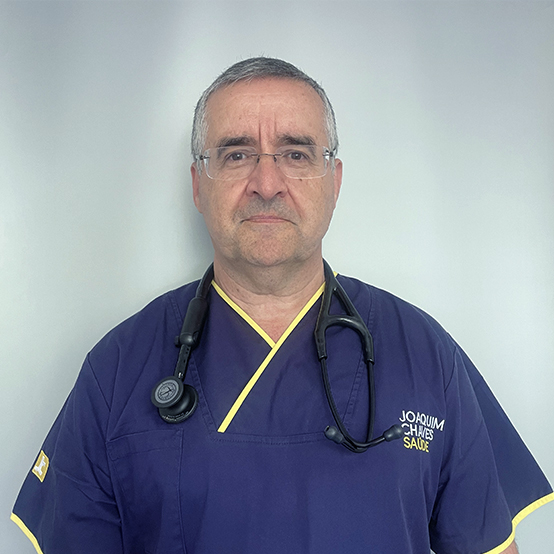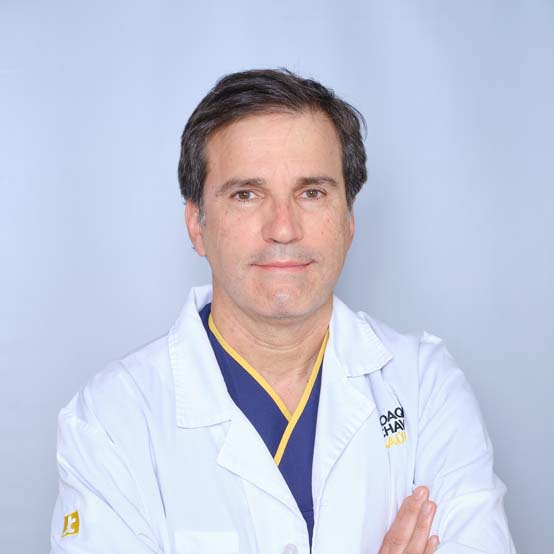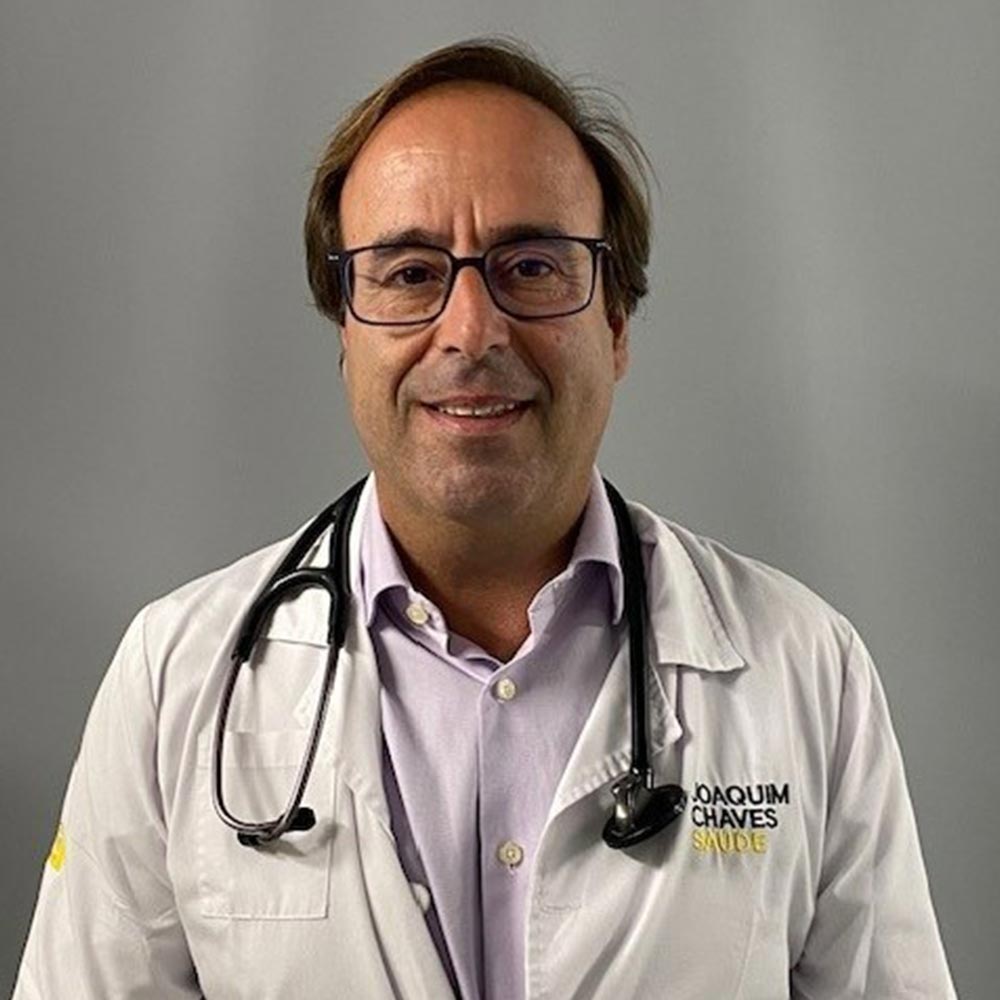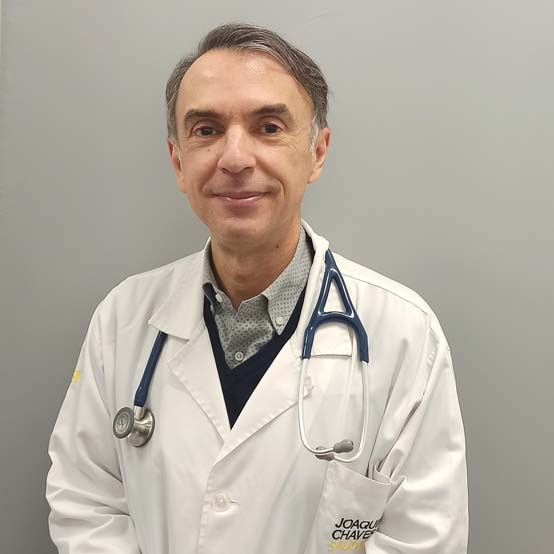Cardiology is a medical specialty dedicated to the prevention, diagnosis and treatment of cardiovascular diseases, including the heart and blood vessels. It covers several disorders, of which acute myocardial infarction stands out as one of the main causes of death and the deadliest among coronary diseases.
Cardiologists are highly qualified professional that prevent and treat many other cardiovascular diseases, such as atherosclerosis, atrial fibrillation, arrhythmia, high cholesterol or hypertension. Stable angina and aortic valve stenosis are other common conditions covered by the specialty. The study of aneurysms, deep vein thrombosis and congenital heart defects is also part of Cardiology.
Cardiologists diagnose cardiovascular disorders using blood tests, cardiac stress tests, computed tomography (CT) and magnetic resonance imaging techniques.
Symptoms that can indicate a heart problem include shortness of breath, dizziness, chest pains, changes in heart rate or high blood pressure. Experiencing these symptoms is reason enough for an urgent visit to the doctor. It is also recommended to consult a cardiologist even without symptoms, especially with a family history of heart disease or high cholesterol. Smokers, diabetics should also visit cardiologists regularly as should those starting a new exercise program.
Joaquim Chaves Saúde features a team of highly qualified professionals in the medical specialties of Cardiology, and Pediatric Cardiology. We provide a comprehensive service, with the main non-invasive techniques and exams performed with the latest equipment, to analyse and detect an array of cardiovascular diseases.
The Joaquim Chaves Saúde Echocardiography Laboratories (at Miraflores Clinic and Cascais Clinic) received international accreditation for Transthoracic Echocardiography by the European Association of Cardiovascular Imaging of the European Society of CardiEuropean Society of Cardiology.
Cardiology
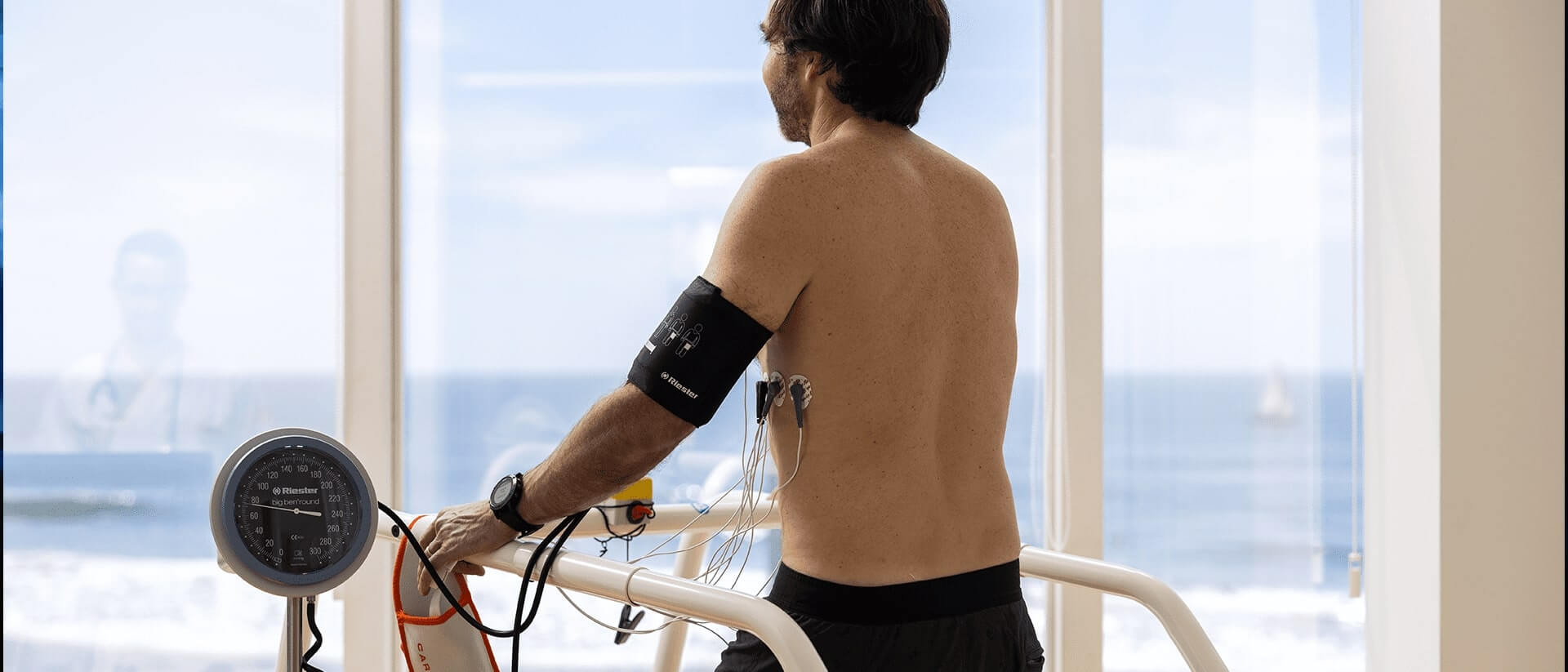
Medical tests
Learn about our diagnostic techniques, essential to detect pathologies and advise on the best treatment.
Electrocardiogram (ECG)
Transthoracic Echocardiogram (TTE)
Heart Doppler
Electrocardiogram (ECG) with Stress Test
Ambulatory Blood Pulse Pressure
Holter monitor
Cardiac Event Monitor (7 / 14 days)
Cardiac Rhythm Consultation
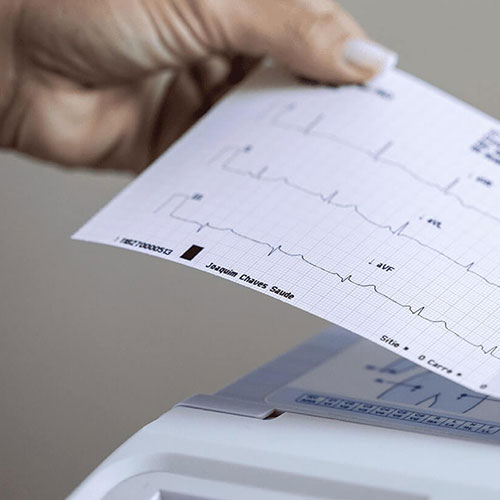
In our clinics we also offer Cardiac Rhythm consultation, a subspeciality of Cardiology, which is aimed at the diagnosis and treatment of changes in the heartbeat or rhythm, such as arrhythmia.
Health Blog
Live well by preventing: explanations, advice and tips for your health.
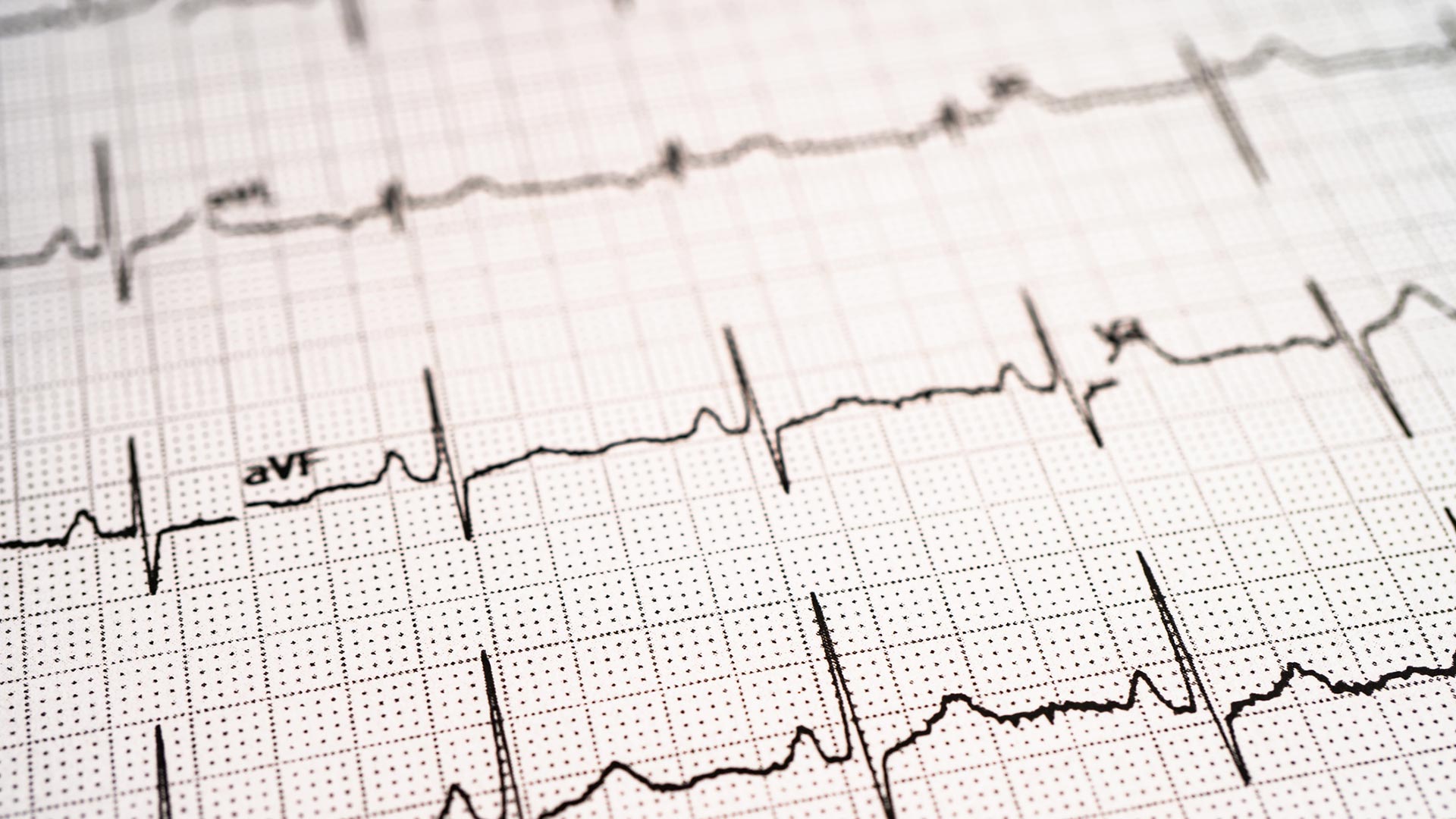 Cardiology - Blog
Cardiology - BlogElectrocardiogram: how it’s done and how to prepare
2024-10-024 min of readingThe electrocardiogram is one of the principal exams that measures the heart’s activity. Find out when it’s used, what limitations exist and how to prepare.
 Cardiology - Blog
Cardiology - BlogAmbulatory Blood Pressure Measurement (ABPM): what it is and when to do it
2025-02-074 min of readingAmbulatory Blood Pressure Measurement is an exam that monitors blood pressure, even during sleep. Find out how it’s done and who should do it.
Cardiac event monitors: what they are and what they’re for
Tachycardia: causes, symptoms, and treatment
Paediatric Cardiology: what it is and why it’s needed
Book Appointment or Exam
Medical Clinics
- Schedule
- Weekdays: 07h00 to 20h00
- Saturdays: 08h00 to 13h00
- Sundays and Holidays: Closed
- Contacts214 124 300*
- AddressR. Dr. João Gomes Patacão 15A,
If you share your location, we can show you the nearest Healthcare Unit and how far it is from you.
